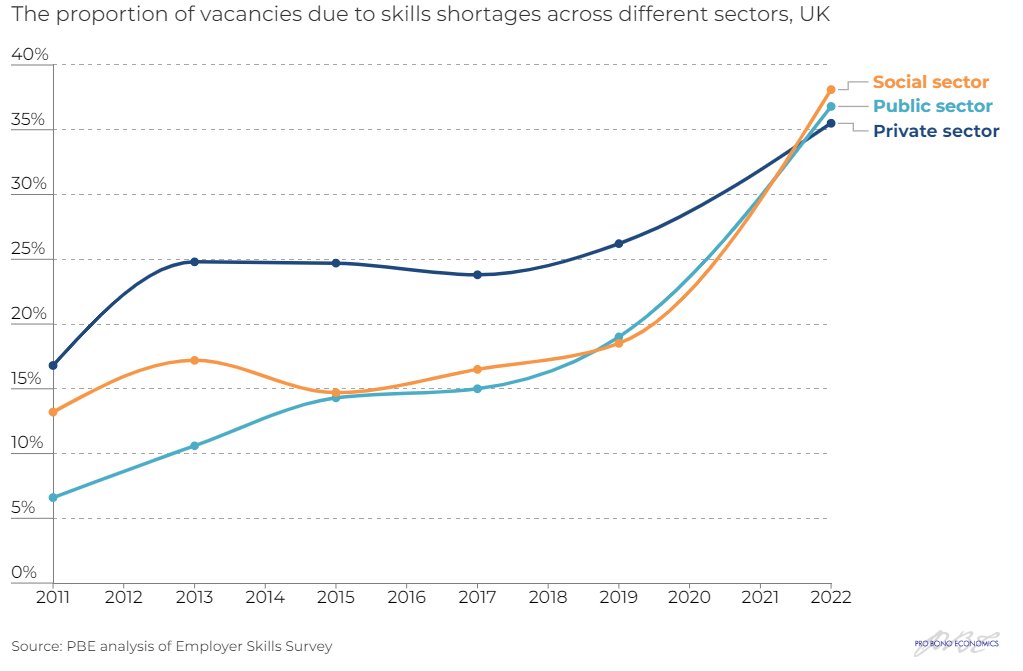Job vacancies in the UK charity sector are being driven up by a lack of workers with the necessary skills, according to researchers.
Unfilled roles at charities almost doubled from 2.6% in 2011 to nearly 5% in 2022, according to analysis of recent government data by Pro Bono Economics (PBE).
The proportion of vacancies in the sector that were due to a lack of candidates with sufficient skills for the role rose from 13% to 38% in that time, it said.
Meanwhile, charities have reduced their spending on employee training by more than a quarter since 2011 in real terms per worker, PBE reported.
It said that the average amount of training time each charity sector employee received has fallen by a fifth in that time.
Sector comparison
PBE reported that the “skills vacuum” was escalating more rapidly than in other parts of the economy, with charities overtaking the private and public sectors in 2022 in its proportion of vacancies due to a skills shortage.
“The social sector enjoyed 10% fewer skills shortage vacancies than the private sector in 2015 – but that cushion had disappeared by 2022,” wrote PBE analyst Taran Uppal in a blog.
“The social sector’s hard to fill vacancy rate also outstripped the private sector’s in 2022. These trends suggest that the social sector is losing ground to the private sector in the race for skills.
“If this trend continues, the social sector is likely to lose a progressively greater number of prospective skilled candidates to the private sector. Worryingly, more of the current skilled workforce in the sector may also be tempted by attractive offerings from the private sector in the future.”

Investment needed
Uppal said “urgent action is therefore essential” from charities to address the skills shortage in the sector.
However, he said financial constraints prevented smaller organisations in particular from investing in the necessary training.
“Just 52% of smaller charities have a dedicated training budget compared to 86% of larger charities,” he wrote.
“The use of short-term fixed contracts, necessitated by the uncertain nature of contract funding, in the sector is also likely to play a role, as it disincentivises organisations from investing for the long-term in their employees.
“It’s also likely that time availability is another barrier, which particularly effects small charities, as demand for charitable services remains elevated.”
Uppal said grantmakers had a “vital role to play” in covering charities’ training costs, while longer term contracts and greater awareness of cheaper resources would also help.












